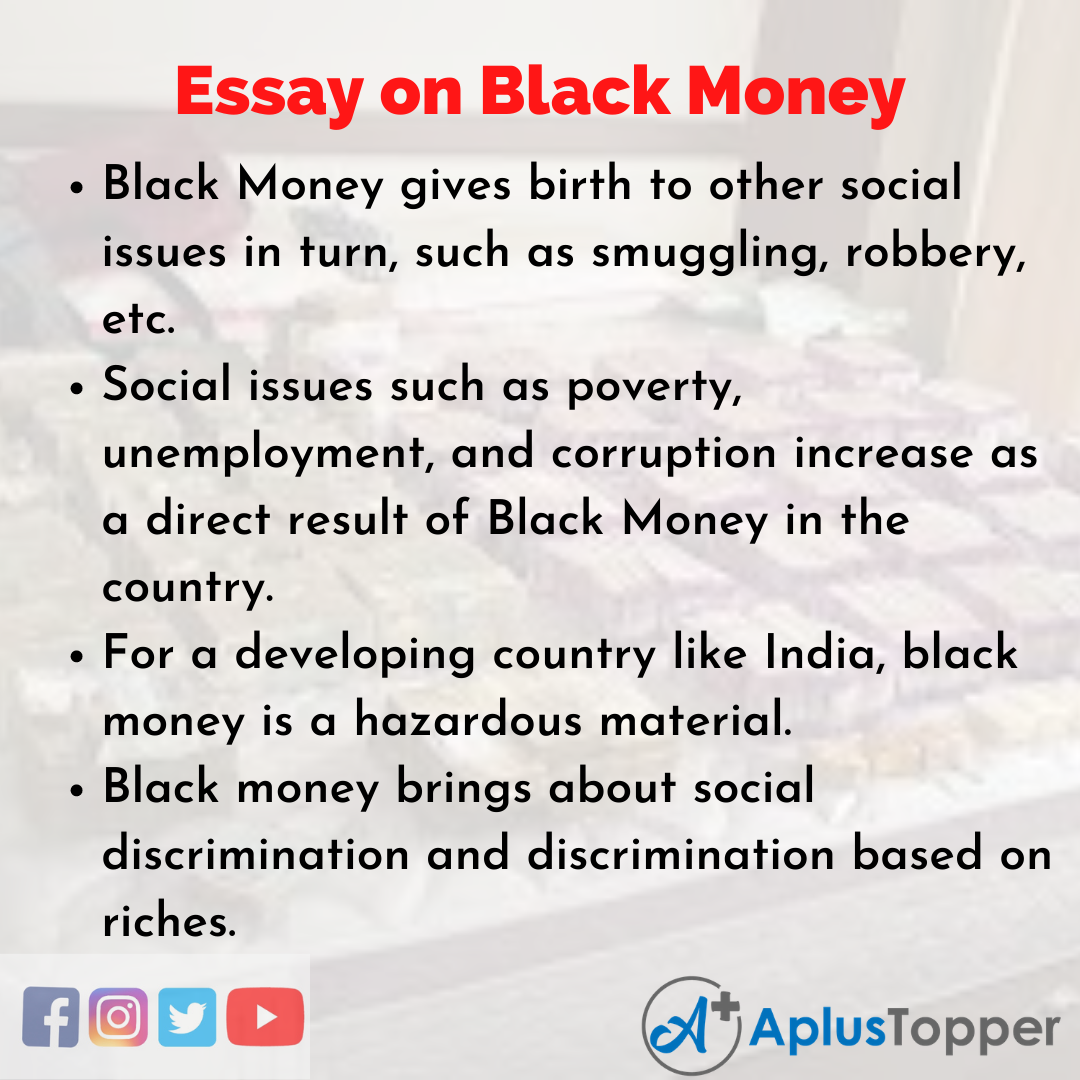Black money is a term used to describe the proceeds of illegal activities that are not reported to the government for tax purposes. It is a major issue in many countries around the world, including India, where it is estimated that black money accounts for a significant portion of the country's GDP.
There are several ways in which black money is generated, including tax evasion, money laundering, and corruption. In some cases, individuals or businesses may underreport their income in order to pay less in taxes, while in other cases, the proceeds of illegal activities such as drug trafficking or arms dealing may be laundered through the financial system in order to conceal their origin.
The existence of black money has far-reaching consequences for both the economy and society as a whole. For one, it allows individuals and businesses to avoid paying their fair share of taxes, which can have a negative impact on the government's ability to fund public services and infrastructure. Additionally, black money can fuel corruption and undermine the rule of law, as it often involves the illegal use of power and influence.
There are several measures that governments can take to combat the problem of black money. One approach is to increase the transparency of financial transactions and tighten regulations around money laundering. This can be done through the implementation of stringent reporting requirements and the use of advanced technology such as blockchain to track financial flows.
Another approach is to improve the effectiveness of tax collection systems and increase the penalties for tax evasion. This can include the use of data analytics to identify and investigate cases of tax evasion, as well as the development of stronger laws and enforcement mechanisms to punish those who engage in such activities.
Finally, it is important to address the root causes of black money, such as corruption and illicit activities. This can be done through the promotion of transparency and accountability in the public sector, as well as through the implementation of measures to reduce the demand for illegal goods and services.
In conclusion, black money is a complex and pervasive problem that has significant negative impacts on both the economy and society. Tackling it will require a multifaceted approach that addresses both the demand and supply sides of the issue, including efforts to increase transparency, tighten regulations, and address the root causes of illegal activities.







_050614122916.jpg)
